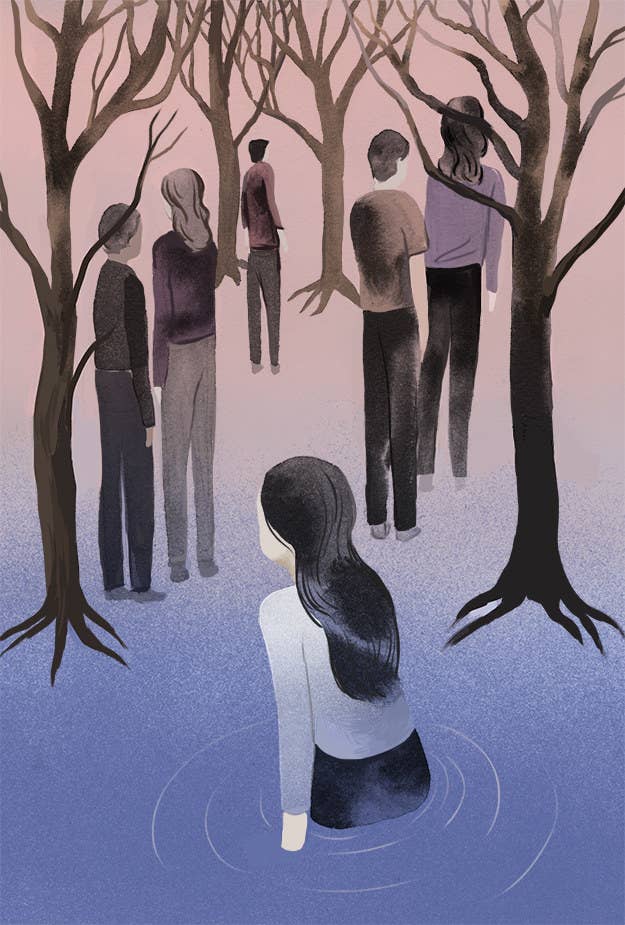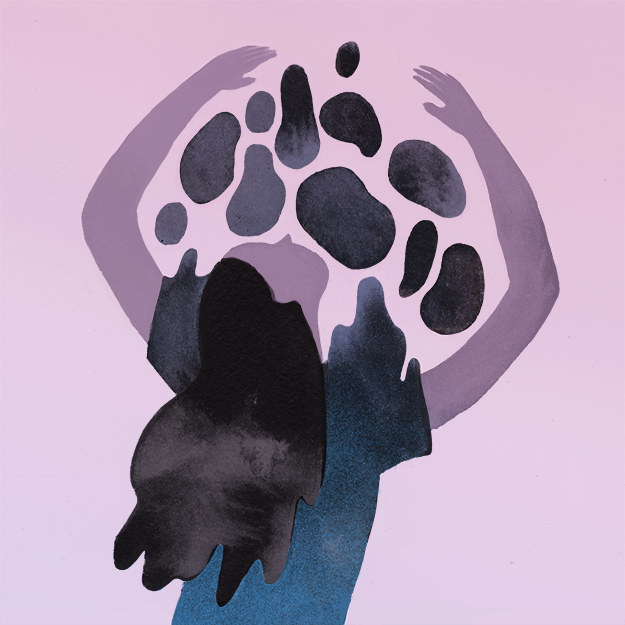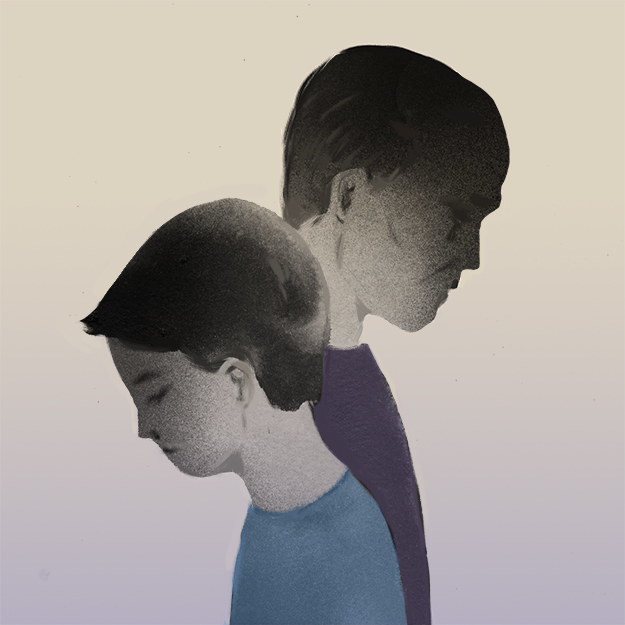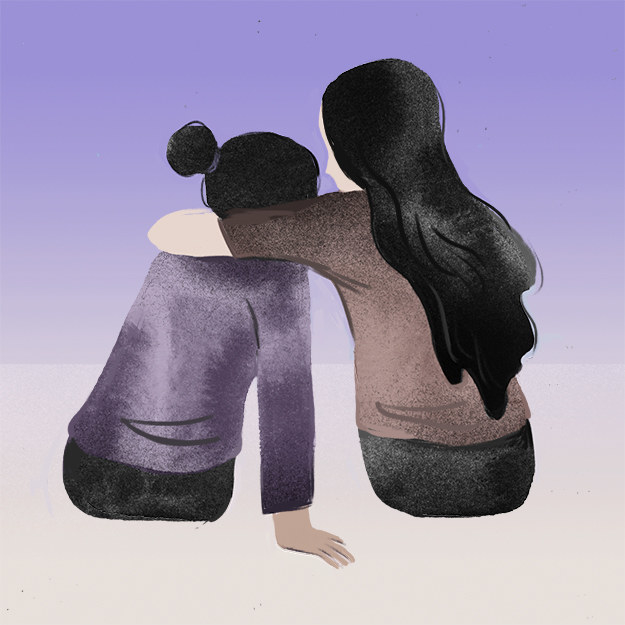
The urge to self-harm isn't uncommon, but, because people often keep their habit a secret, a lot of people have misconceptions about who does it, why they do it, or what it means.
To help others better understand self-harm, we asked the BuzzFeed Community what they wished they could tell people and what misconceptions they wanted to clear up.
By the way: Just because self-harm isn't uncommon doesn't mean it's a healthy coping mechanism or that recovery isn't possible. If you are dealing with the urge to hurt yourself or have thoughts of suicide, the US National Suicide Prevention Lifeline is 1-800-273-8255. A list of international suicide hotlines can be found here. And if you prefer to text, you can message the Crisis Text Line by messaging 741741. Lastly, here is a list of things that have helped people in the BuzzFeed Community resist the urge to self-harm.
1. Self-harming is not something people do ~just for attention~.
"I wish that people knew it was not for attention or to be edgy. I started self-harming as a teenager as a way to punish myself. It was never to show off or to seek pity. It was a private thing that I did because I was feeling so much emotional pain, I didn't know how else to express it."
—Jen, 22
2. But sometimes, people do it in hopes of being noticed, and that's totally valid, too.
"It was a cry for help — the only way I thought people would actually notice me. Many people who cut themselves hope someone will notice, so they can actually get the help they need."
—Autumn, 19
3. Self-harm isn't just cutting — it's any form of hurting yourself on purpose.
"Cutting is the most well-known type of self-harm, but there are a lot of ways to hurt yourself. Some things leave a mark and some don't, but they're all legitimate and serious forms of self-injury."
—Todd, 16
4. It's a coping mechanism for various experiences of mental illness, trauma, and abuse, not just depression.
"I feel like the media portrays self-injury as a symptom of depression. This is true for some self-injurers, but it's important to remember that people self-harm for a variety of different reasons."
—Kate, 27
5. And it doesn't mean a person is suicidal — although it can.
"Self-harm is categorized by psychologists as NSSI, or non-suicidal self-injury. This means that self-harm, by definition, is not done with death in mind. Someone who is suicidal can self-harm instead of attempting suicide, along with a suicide attempt, or before resorting to suicide, but self-harm in and of itself is not a suicide attempt."
—Brittany, 19
6. It can be about creating pain the person can control.

7. Or feeling something physical when otherwise everything is numb.
"There comes a point where everything you've ever been through accumulates to a point where it's entirely numbing. With this comes the sick mindset that the only way you can feel anything is by hurting yourself."
—Summer, 17
8. For some people, it provides temporary relief when their feelings are overwhelming.
"Personally, I would cut myself whenever I was feeling too MUCH. Be it sadness or frustration or anxiety or self-loathing. It was a way to quiet everything in my head down and focus on one thing."
—Kate, 27
9. For others, it's about physically manifesting the emotional pain they're dealing with.
"People who self-harm generally use the physical pain that comes with whatever ritual they've chosen as a way to physically SEE their pain. It always made my emotional pains more bearable because seeing blood made my mental anguish feel tangible."
—LadyRed, 27
10. It's not just a teen problem; a lot of adults self-injure.

11. But there's also no such thing as being "too young" to have the urge.
"I was hospitalized for self-harm and being suicidal when I was only 12. I was the youngest person there. Even other patients, ranging from 13-17 would say, 'You're too young for this!' I'm not. The urge to harm yourself can come at any time, and I wish people knew that. Depression and anxiety can come at any age. No one is too young to have their lives affected by it."
—Lili, 14
12. In fact, there is no single type of person who self-harms, and you probably know someone who does.
"I think there is this misconception that people who self harm are very goth and shop at Hot Topic, and are fascinated by blood or gore. But we tend to look pretty normal, with normal jobs, and all different kinds of tastes, opinions, and feelings. We probably look like the person next door, your coworker at your office job, your babysitter, your boss. Self-harm doesn't discriminate."
—LB, 29
13. For a lot of people, it's addictive, so it's not as easy as "just stopping."
"Self-harm is an addiction, like smoking. It is not easy to quit. It requires hard work, a good support system, and a positive outlet for feelings. In some ways it may be harder to overcome than other addictions because it is generally a lot more private and many people don't know that you are struggling."
—Sara, 18
14. And recovery for self-harming behavior isn't linear. For some, the urge never quite goes away.
"I can go months without the urge to self-harm, and then have a relapse moment. The important thing to remind yourself of in those moments is that this moment doesn't negate the moments of recovery you had prior to it."
—Franchesca, 21
15. The urge can pop up out of nowhere.

16. If you want to ask about or comment on someone else's scars, cuts, burn marks, bruises, whatever, just...don't.
"I know you just want to help me, but that just draws attention to them when all I want to do is forget I have them. Resist the urge to make any sort of mention of my scars because it's taken months for me to gain the self-confidence to wear short sleeves, and the last thing I want is for people to draw attention to my scars."
—Sonya, 16
17. That said, if you are genuinely worried about someone and want to check in, make sure you bring it up with them privately.
"For me, self-harm was about trying to receive help, so I wanted people to notice. It's okay to ask and check in, as long as you're not calling it out casually or in front of other people."
—Ryan, 24
18. Joking about self-harm is pretty much never funny.
"Don't make jokes about cutting because you don't know whether someone has done it, and they could take it seriously. I don't like when people make jokes about it. It's not funny."
—Sarah
19. If you've seen self-harm depicted in the media, chances are it's been inappropriately romanticized.
"Self-harm should not be romanticized. It's not pretty sobbing in the bath tub with blood circling the drain. It's not beautifully tragic to use a tape dispenser edge to cut yourself. It's not 'cool' having your family members find razor pieces hidden throughout your room."
—Annie, 22
20. You might feel angry when you find out someone you love has been hurting themselves, but try to control that response.
"If you find someone who has been self-harming, don't get mad at them! It doesn't help anything. Yes, seeing them do that can hurt you as a friend or family member, but imagine what they have to deal with in order to resort to that. Don't ask them, 'How could you do that to us? I thought you loved us. If you did, you wouldn't do this to yourself.' Because guess what? That has probably crossed our minds and we don't need that."
—Izzy
21. You might not always understand self-harm, but it's more important to listen and be there for someone than it is to try to make sense of it.

22. Just because a person self-harms doesn't mean they're not also actively trying to get better and develop healthier coping mechanisms.
"I have a therapist, I take medication, and I have better days. But then, I have shitty days."
—Ging, 27
23. And lastly, people who self-harm, or who have self-harmed in the past, aren't weak.
"I wish people would stop thinking self-harm is a sign of weakness. People who self-harm are not weak. They have just been strong for too long."
—Jenny, 23
To learn more about self-harm, check out the resources at the National Alliance on Mental Illness here.
And again, if you need to talk to someone immediately, you can find resources at the top of this post.
Follow along at BuzzFeed.com/MentalHealthWeek from Oct. 2 to Oct. 8, 2017.


